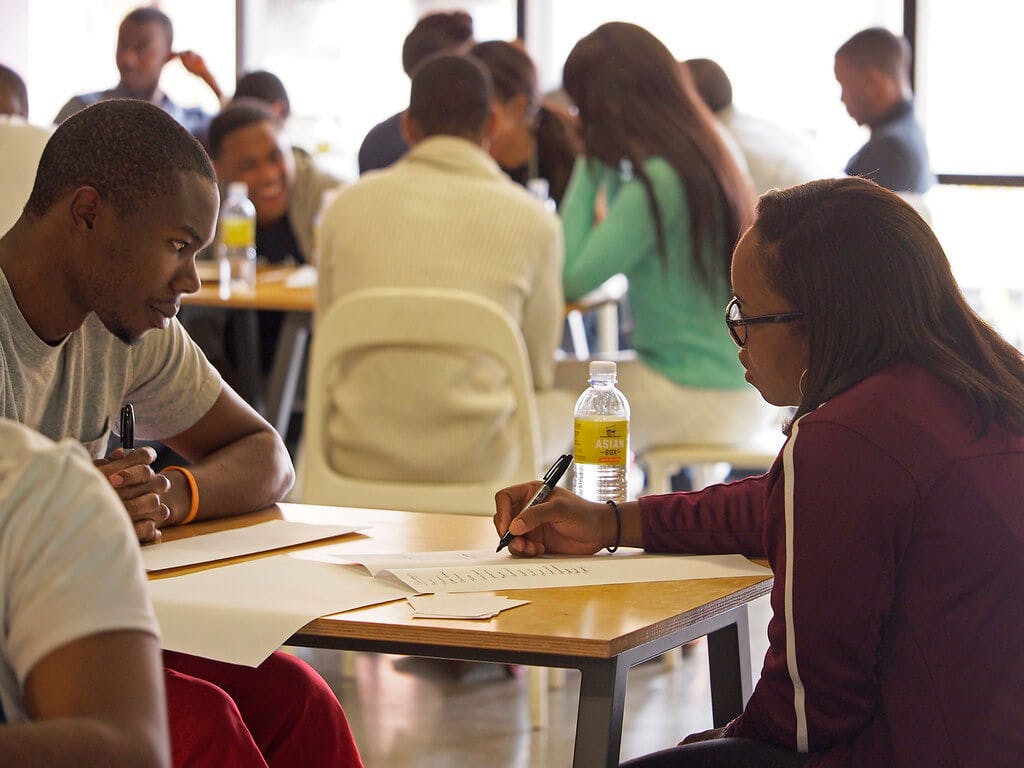In Conversation: What Comes Next for HBCUs?

HBCUs, or Historically Black Colleges and Universities, were the first institutions to open their doors to black Americans. The very first HBCU was founded in Pennsylvania in 1837, and would later come to be known as Cheyney University.
Today, the prominence of the Black Lives Matter movement, and our alumna Vice President, have heightened the exposure of HBCUs. They’ve been a clear contributor to the enrollment spike that many of these schools are experiencing, despite the declines that PWIs (Predominantly White Institutions) have endured.
COVID-19 proved that institutions would need to be flexible in their approach to managing the “new normal,” so they turned to online courses, virtual events, and a strong digital-first approach. As the country reopens and life resumes, we want to explore what lessons universities will take with them.
More specifically, we want to know what HBCUs will do to stay agile and continue to thrive.
Recap
Unibuddy’s HBCU Fireside Chat series is focused on celebrating the achievements of HBCUs and the influencers giving them a voice, and our kickoff event put this imagined future into perspective.
We had a conversation with Dr. Kara Turner, Vice President for Enrollment Management and Student Success at Morgan State University, and Dr. Carjamin Scott, Director of Admissions and Recruitment at Tennessee State University.
Transitioning
Moderator, University Partnerships Manager Brittney McFadden, began by asking the Drs. how they’ve managed to sustain that community and human connection that is so inherent to HBCUs during the pandemic.
Resoundingly, it was no small feat. Dr. Turner replied that the Morgan State admissions department was “team no sleep,” as she described. Dr. Scott explained that their team had to sit down and evaluate how best they could continue to serve their students.
“If our cups are empty, how can we pour into our students’?” she asked. She now admits it’s been a blessing in disguise because Tennessee State is better equipped for the future, and their department is much stronger as a result.
Continuing
The next question posed was, of course, how they each planned to keep up the momentum they’d created. Dr. Turner remarked that they want to keep the focus on the great work that HBCUs have always done—that people have only just started realizing they’re doing—within the spaces where black lives have always mattered.
They could both agree that COVID-19 forced higher ed into the realm of heightened accessibility via the digital approach, thus bolstering progress that would otherwise have come in a decade.
Morgan State will continue to utilize virtual recruitment strategies henceforth. Alongside their migration to test-optional admissions criteria, this adaptation has been integral to increasing accessibility. Likewise, Tennessee State embraced and will uphold these same initiatives.
Where there’s success, there were surely obstacles. Dr. Turner noted that perception is key. While they know that they do a great job of educating their student body at Morgan State, there are guidance counselors and parents who undervalue and misconstrue their institution.
The spotlight is important, she said, and so is taking advantage of this gravity to inform the people lacking an understanding of HBCUs.
Diversifying
Have you wondered what diversity means to HBCUs? In a myth-busting moment, Dr. Scott emphasized that black students are not a monolith and HBCUs don’t only want to educate black students, nor do they.
Dr. Turner added that Morgan State’s non-African American enrollment currently sits around 10%. Despite the decline in international students, they even have broad ethnic diversity amongst their black students.
“We have always been open to everyone, even when other institutions were not open to us,” said Dr. Turner. “Historically Black” will always be a part of the culture, she explained, but they have to diversify if they want to grow in a country that is fast becoming a racial majority-minority.
Concluding
In their final remarks, both guests emphasized the overarching need for adaptability and willingness to accept change. The higher ed sector, HBCUs included, has finally been forced out of stagnation, and the rewards of these adjustments can be continually reaped if institutions keep the open minds that they’ve had during this time.
Not being an expert doesn’t mean that you can’t learn to get things done in new ways. Schools are dealing with students and a community that are stressed out and in need of reassurance and support.
People want to be listened to and they want their stories to be heard. Dr. Scott concluded that we should listen to them, and get to know each other better.
Questions flooded into the chat from the audience throughout the session, so a myriad of other subjects were touched upon by both speakers—all of which were met with insightful and impassioned responses.
If you’d like to hear some of them, as well as the other bits not covered in this recap, you can view a recording of the event, and stay tuned for the next session.


